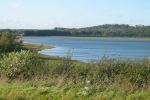The West must prove we will not concede to Putin’s demands. We will stand by our allies and learn from our history. We must recognise our collective power and damn well stand sure of it.
In the run up to Christmas, Putin amassed 100,000 troops on the Ukrainian border; and tomorrow, Russia will hold talks with the US and separately with NATO and the Organisation for Security and Co-Operation in Europe (OSCE).
These talks aim to de-escalate tensions following demands made by Putin on December 17 which boil down to the Cold War mentality of ‘What’s ours is ours, what’s yours is negotiable’.
He demands an end to NATO’s expansion into former Warsaw Pact countries, the removal of US missiles from Europe, an end to military co-operation with the former Eastern Bloc countries such as Ukraine, and NATO’s withdrawal from post-1997 states. Russia is all but threatening war if their demands are not met.
This is Putin’s typical brinksmanship, he has successfully created tensions, laid out a threat by deploying troops to Ukraine’s border, and then constructed a narrative in which NATO and allied nations are under pressure to stand down existing commitments, and to offer concessions to prevent a Russian invasion of Ukraine.
On the eve of discussions, Putin has gone further and sent 2,500 Russian troops into Kazakhstan. The reasons may primarily be to shore up an allied dictator and neighbour, but I’m in no doubt he also sees it as a warning to those he will meet tomorrow: borders mean nothing to him, and he is only too happy to expand the Russian imperial yoke, if we let him.
But we cannot allow these acts of aggression to deter the UK’s resolve towards Ukraine or any NATO ally.
Kazakhstan is one of Russia’s strongest allies, and Russia entered the country following the request of the current President of the regime.
Technically Russia has also entered as part of an alliance, the Collective Security Treaty Organisation (CSTO) made up of such stalwart defenders of freedom as Belarus, Kazakhstan, Kyrgyzstan, Tajikistan and Armenia.
Any encroachment into Ukraine would be so very different, a military invasion by an aggressor against the wishes of the people of Ukraine and their democratically elected Government.
His threats and words must be met with a unity of resolve throughout the NATO and OSCE alliances.
Deterrence diplomacy requires us to stand strong, and make clear to a weak Putin that he must step back from Ukraine, and not expect us to strip back our long-standing commitments to support our NATO allies, and stability across the European continent.
That isn’t to say there aren’t some issues on which a sensible and pragmatic agreement could help lessen tensions.
All parties could agree to a reduction of, or limits on, military exercises; and indeed on arms controls and positioning of weapons arsenals within certain firing ranges. But then the question is whether we believe Putin will uphold any commitment he makes.
It is NATO and our Five Eyes Alliance, not the EU or some preposterous Army of theirs, as some might claim, that are the cornerstones of our defence.
Putin recognises this, and is desperate to remove the alliance from his borders.
The terms of NATO enlargement should be forged by its constituent independent sovereign nations – not dictated to by autocrats.
I have been calling for Bosnia and Herzegovina’s accession talks to resume, because it would provide the security needed to protect its people from the aggression of those genocide-celebrating individuals still entranced by the idea of a Greater Serbia.
What Central and Eastern European countries want, and have wanted since their liberation, is the ability to build their own nations, for the good of their own people, rather than simply being a piggy bank or pawn in international politics for Moscow.
The EU is unable to act on foreign policy because it is wrapped up in its own bureaucratic web: with competing interests preventing Brussels from forming a clear view on anything.
Where Poland might think of security against an aggressor, Germany might demand the preservation of its Russian gas supply; and Hungary of its friends in the Kremlin.
We may let Putin huff and puff, but we must stand strong. Russia is a weak power, and we must recognise these documented demands as what they are: propaganda targeted at the Russian people.
NATO is here to stay. It is a defensive pact, the only threat it could ever pose to Russia is if Putin acts as the aggressor.
The time has come for the West to stand firm, and ensure that NATO, the guarantor of our freedom, can protect millions more from a terrorist state, and its dictator: Putin. Putin knows he cannot win. We in the West have the upper hand, we just need to act like it.
This article originally appeared on express.co.uk on Sunday 9th January 2022


